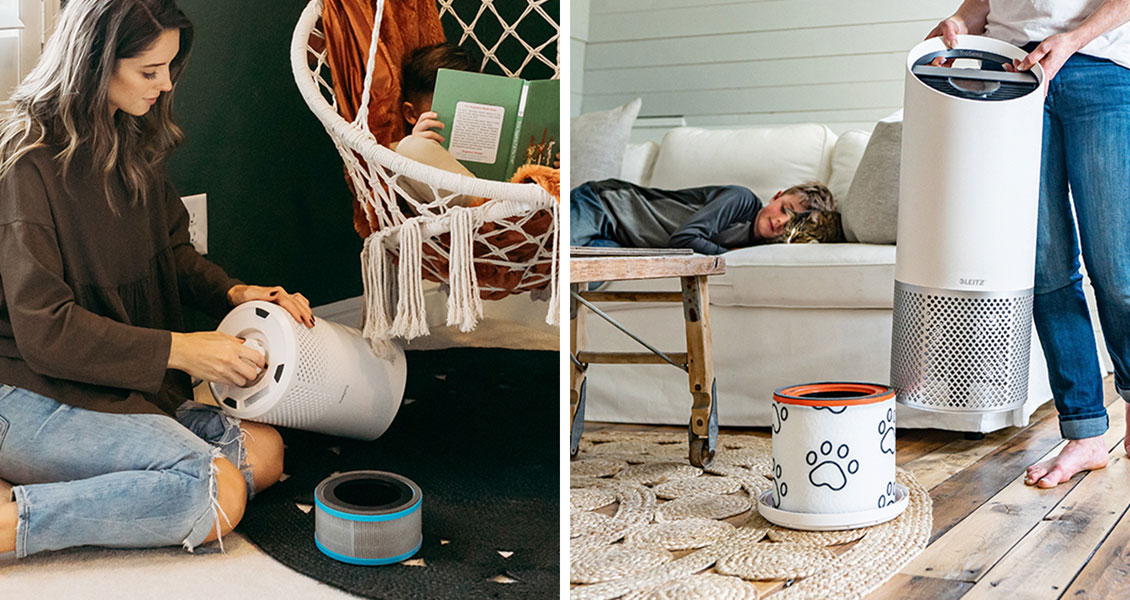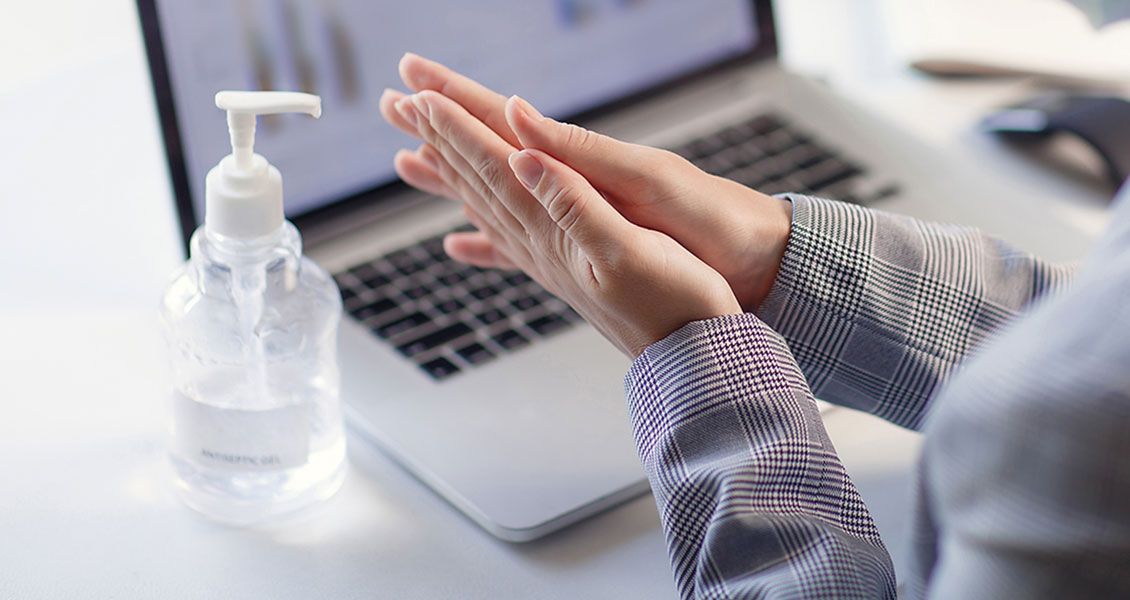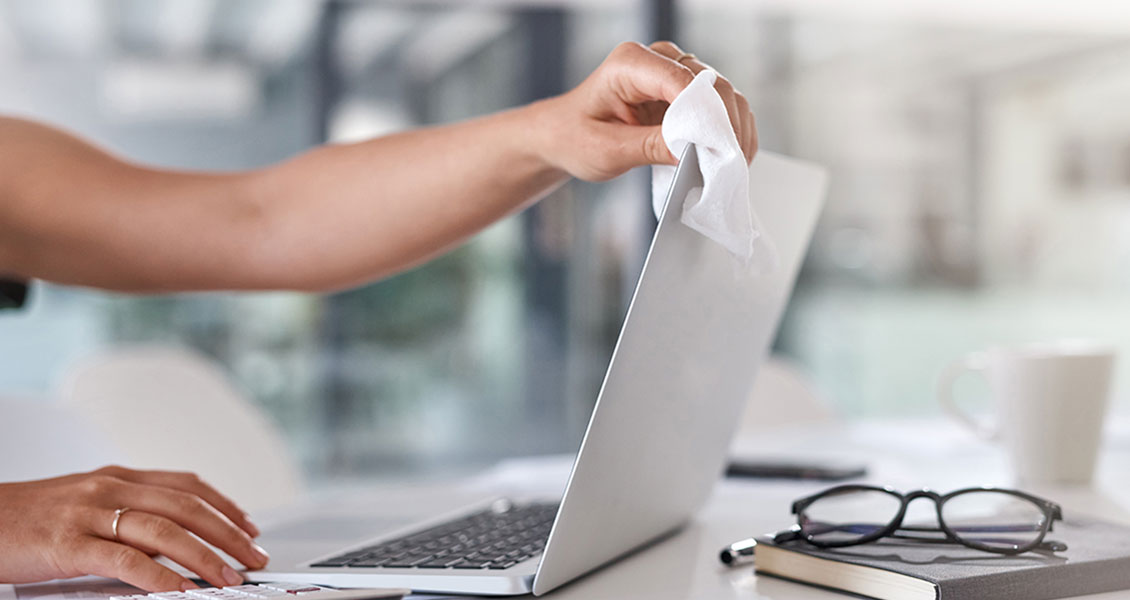Cold and Flu Prevention Tips for the Workplace
30.09.2022

Cold and flu can play havoc in the workplace. When many employees get ill at the same time, businesses and employees can struggle to cope with the workload, costing them time and money, as well as causing the remaining employees to suffer from overwork.
Employers have a duty of care to their employees, to help support their health and wellbeing. Whilst you can’t completely remove the risk of employees getting ill, there is plenty you can do to help reduce the spread of illnesses. If you’re wondering how to prevent viruses spreading in your office, below are the best ways to improve cold and flu prevention at work.
Encourage sick employees to stay home
Businesses should create a culture where employees are encouraged, and feel comfortable, staying at home when they are unwell. An effective sick leave policy should be developed and implemented, so employees can take time off when they’re sick without fear of punishment or losing money.
Businesses that don’t offer paid sick leave, or that utilise a sick leave policy designed to deter people from having time off when they’re unwell, could find that people will just come into work when they’re sick. This will usually lead to more people becoming unwell, which could end up costing the business money when it becomes understaffed.
If an employee comes into work when they’re ill, they should be asked to go home. If they feel well enough to work, they should be encouraged to work from home instead, to make sure the illness is not spread to other members of staff. The senior leadership team should lead by example by not coming into the workplace when they are sick.

Use an office air purifier
The right air purifier can help to reduce of airborne virus transmission, like the flu and coronavirus. In fact, Leitz recently worked with the Irish Department of Education to provide our TruSens Air Purifiers to schools in Ireland, to help prevent the spread of Covid-19 in classrooms. Our air purifiers are just as effective at providing cleaner air in the workplace as they are in classrooms. The allergy and flu HEPA filters capture and destroy 99.97% of airborne allergens and viruses, helping you to breathe cleaner, fresher air.
Our TruSens air purifiers are simple to install and use – just switch on and go. For larger rooms, our air purifiers work with a SensorPod that measures pollutants in the air and communicates the findings back to the air purifier so it can adjust its output and provide cleaner air to the entire room, not just around the purifier. The TruSens air purifier uses bi-directional airflow to deliver purified air throughout the room even more effectively. UV-C light kills germs and bacteria that get trapped in the filter, ensuring these pollutants won’t be spread.
Educate on hand hygiene and respiratory etiquette
After the last few years of the Covid-19 pandemic, most people will already be well educated on proper hand hygiene and respiratory etiquette. But as the threat of Covid-19 reduces, it’s important people maintain this good hygiene to prevent the spread of other viruses and illnesses.

Employees should wash their hands for a minimum of 20 seconds with soap and water, especially after sneezing, coughing, or blowing their nose. Hand sanitiser should also be provided for each employee on their desks, to be used as an interim until it’s possible to wash hands thoroughly.
With regards to respiratory hygiene, employees should be reminded to cover their mouth when coughing or sneezing, and ideally sneeze into a clean tissue and bin it immediately after. Tissues and waste bins should be provided for employees for ease of access.
Raise awareness of cold and flu symptoms
Education materials should be provided to employees, to raise awareness of the various symptoms of cold and flu. These should include sore throat, aching body, headache, blocked sinuses, as well as coughing, sneezing and a runny nose. This way, employees will be able to recognise the signs that they are becoming ill. It may then be possible for them to work from home or take a day to rest before symptoms have a chance to properly develop. This can help to prevent the spread of cold and flu in the workplace.

Encourage employees to get vaccinated
Staff should be encouraged to get a flu vaccine. This is especially important for businesses that operate in healthcare, education, retail, hospitality or public transport, as there will be an increased risk of illness spreading due to the number of people that are interacted with. Whilst a flu vaccine won’t completely remove the threat of illness, it can help to increase resistance to certain strains.
Having an on-site flu vaccination can help to really encourage staff to get vaccinated and can be booked through a private healthcare provider. They will arrange for a qualified health professional to come to your place of work and administer the vaccine to those employees who wish to take part.
The NHS provides a free flu vaccine to adults aged 50 and over, people with certain health conditions, pregnant people, people who live with someone who is more at risk of infections, carers, and frontline health workers or social care workers. If your employees fall into any of these categories, you should make it as easy as possible for them to take time off to get vaccinated.
Keep workstations clean
All workstations and communal areas should be kept clean. This should be the responsibility of a professional cleaning team, or the employees, or a combination of both. It might be best to ask employees to clean communal areas and frequently touched surfaces, such as printers, kitchen surfaces, and photocopiers, after they have used them and then ensure a professional cleaning team thoroughly cleanse the office a few times a week or even every day.

Employees should be provided with the relevant equipment, such as anti-viral and antibacterial wipes or sprays and cleaning cloths. Staff should be educated on the best way to maintain a clean desk and they should avoid sharing equipment. If your office implements a hot desking policy, employees should know how to effectively clean each workstation at the end of each day, as well as any equipment that will be shared. This should include cleaning screens, keyboards, mice, and phones, which can all be hotbeds for viruses and bacteria. Office chairs will also need to be cleaned, especially the armrests that will be touched frequently.
Promote good health
Maintaining a healthy lifestyle can be one of the best cold and flu prevention methods. Eating a balanced and nutritious diet, getting plenty of rest and sleep, and regular exercise can all help to strengthen the immune system. This helps to fight off colds, flu, and other illnesses.
Businesses should promote good health in the workplace, by raising awareness of the importance of a healthy lifestyle. Employers could also provide fresh fruit to help staff get their vitamins, as well as run, walk and cycle to work programmes, or hold after-work running or yoga clubs to encourage exercise.
Leitz has a range of office equipment and your home office tools to create an efficient and relaxing working environment.
Read more about improving indoor air quality: